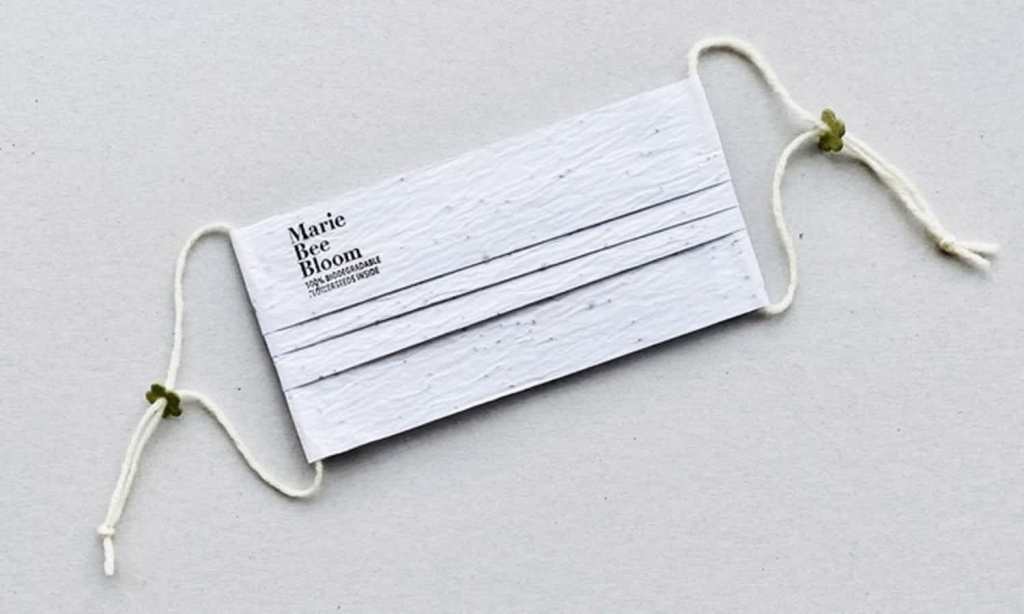In an effort to cut down on plastics and be COVID-safe, Dutch brand Marie Bee Bloom has taken things to the next level.
Not only has it created beautiful single-use rice paper masks in an effort to cut down on plastic pollution, but the brand has also embedded flower seeds into the rice paper, with pretty blooms such as daisies and baby’s breath.
When planted into soil and watered, the seeds start to germinate and within about three days, they’ll grow into a small patch of wildflowers.
The masks were handcrafted in a small community workshop in the Netherlands, and the mask itself is biodegradable whether placed in a garden or a landfill.
The inspiration behind the product was to create an alternative to the disposable personal protective equipment (PPE) that are generally made from plastics. The plastics used to make PPE can take up to 450 years to biodegrade, which then breaks down into microplastics that are ingested by marine life and humans.
Although PPE is commonly used in areas of disease or infection such as hospitals, labs or even certain countries, there was an unprecedented demand for PPE everywhere in 2020, including at our homes. The mass amounts of PPE that have been discarded throughout the ongoing COVID-19 pandemic is concerning when we think about those materials impacting our environment.
Rather than mitigating this pollution, the designers hope to actively regenerate the natural environment by cultivating flowers beloved by bees and other pollinators. It’s a super unique way to be sustainable, while also giving back to nature and the life cycle of our environment.
“Marie Bee Bloom is about ‘blooming the world’, so the intention is really to plant the mask,” the brand’s founder Marianne de Groot-Pons told Dezeen. “Of course it decomposes but I don’t want to encourage people to throw the masks away.”
The seed mix contains seven different Dutch wildflowers, with daisies, petunias, cornflowers and delicate baby’s breath (way cuter than it sounds).
The seeds are fixed in place using a homemade adhesive of potato starch and water, wedged between two sheets of rice paper.
“I was already familiar with growth paper, a paper that contains seeds but is often thick and used for cards or invitations,” said the designer. “The variant I was looking for had to be thin so that it could be folded and carried well, which I found in rice paper.”
She also states that the seeded paper offers as much protection as other homemade masks, and takes it all the way by using biodegradable ink for the logo and sheep’s wool for the ear loops.
Given the necessary constant use of PPE in a pandemic world, de Groot-Pons hopes to expand the brand internationally with seeds that are appropriate to different local ecosystems, and offers a sustainable alternative to an unavoidable resource.
An estimated 129 billion face masks have been used every month across the world in 2020. In addition to reusable masks, these are another fantastic solution.
“In all the years that I have been working as a graphic designer, I have also polluted the earth with designing for print and packaging, so I wanted to give something back,” she said.
“After weeks of tripping over all the blue disposable face masks on the street, I woke up one morning to the idea of a biodegradable mask with flower seeds in it – happy Earth, happy bees, happy nature, happy people.”
Read more stories from The Latch and subscribe to our email newsletter.







